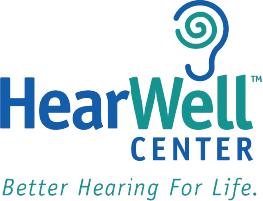Did You Know? Popular Hobbies and Activities Hurt Your Hearing
Spring is the season to go, go, go with lighter, longer days. Make sure you’re protecting your hearing during some of your favorite spring pastimes and hobbies with our quick spring hearing guide!
Motorcycles
Being aware of your surroundings is essential for a safe ride. However, motorcycles can affect your ability to maintain that awareness. The engine noise can get up to 100 decibels (dB) — that’s as loud as a jet taking off! — while riding, and hearing loss starts at 85 dB. Keep your focus on what’s ahead of you with custom in-ear monitors that provide hands-free talking and seamless music streaming.
Home Improvement
According to the Centers for Disease Control and Prevention (CDC), wood or metal shops and power tools have an average sound intensity of 100 dB, with a recommended exposure limit of 15 minutes at a time. (For reference, a train whistle measures 90 dB.) These popular home-improvement tools are just some of the devices that can cause hearing loss.
- Hand drill: 98 dB
- Power mower (from 3 feet away): 107 dB
- Power saw (from 3 feet away): 110 dB
Public Transportation
The squeal and grind of light rails, trains, and even buses coming to a stop have the potential to cause hearing damage to daily riders of public transportation because of constant exposure to noise. Rough or curved tracks prevent smooth rides, leading to more noise, and those who are waiting for their bus or train are exposed to potential traffic on a busy street, which can sometimes reach levels of 100 dB or more.
Convertibles
Driving more often creates the potential for developing or worsening hearing loss, thanks mostly to the sounds of the road and other passing vehicles. Some cars dampen sound, but convertibles lose that extra layer of “quiet ride” protection, leaving ears exposed to potentially dangerous noise levels around them. An October 2009 study found that driving some convertibles at speeds between 50 and 70 miles per hour exposed drivers to noise levels of 88 to 90 dB — beyond the level where damage begins to occur.
Attending Arena Sporting Events
Due in part to the nature of sporting events — watching athletes perform — the danger of noise is often forgotten. Many stadiums still generate crowd noise dangerous enough to damage hearing. Seattle’s CenturyLink Field last year posted a decibel record of 137.6 (as loud as a thunderclap), enough to cause permanent damage in 30 seconds. Noise levels of 115 dB or more — about the equivalent of a concert — are not uncommon but are safe to experience for only 15 minutes.
Concerts
Live-music concerts, where noise volumes might reach well into the danger zone of 85 dB and above, can play a role in hearing loss. Concert noise levels can register upward of 100 dB and last for hours, potentially causing sudden or gradual hearing loss that’s temporary or permanent. To protect your ears, wear quality, well-fitting earplugs that curb the loudest noises yet still allow you to enjoy the music performance.
Fireworks
Fireworks can cause serious hearing damage, with sounds reaching up to 150 dB (from 3 feet away). Public health experts have estimated that more than 5 million youths ages 6 to 19 and some 26 million adults ages 20 to 69 have noise-related hearing loss. Keep children and pets a healthy distance from fireworks displays this Fourth of July.
What You Can Do to Protect Your Hearing
- Earplugs: Look for flanges that limit the volume while still allowing for clear hearing of speech. Foam or silicone constructions are best for earplugs because they reduce additional decibels.
- Earmuffs: Look for soft, padded ear cups with a slim headband so the earmuffs will stay in place comfortably. Those soft ear cups will help air circulation over the ear to keep your head cool. You can even find foldable, easy-to-carry earmuffs, as well as reflective ones.
- Musician earplugs: These are attenuated for accurate replication of sound, so the fidelity of the original sound is preserved. Sound quality is clearer and more natural, and listening fatigue due to noise exposure is reduced.
Contact us for a preventive hearing screening and more information on our protection products.






